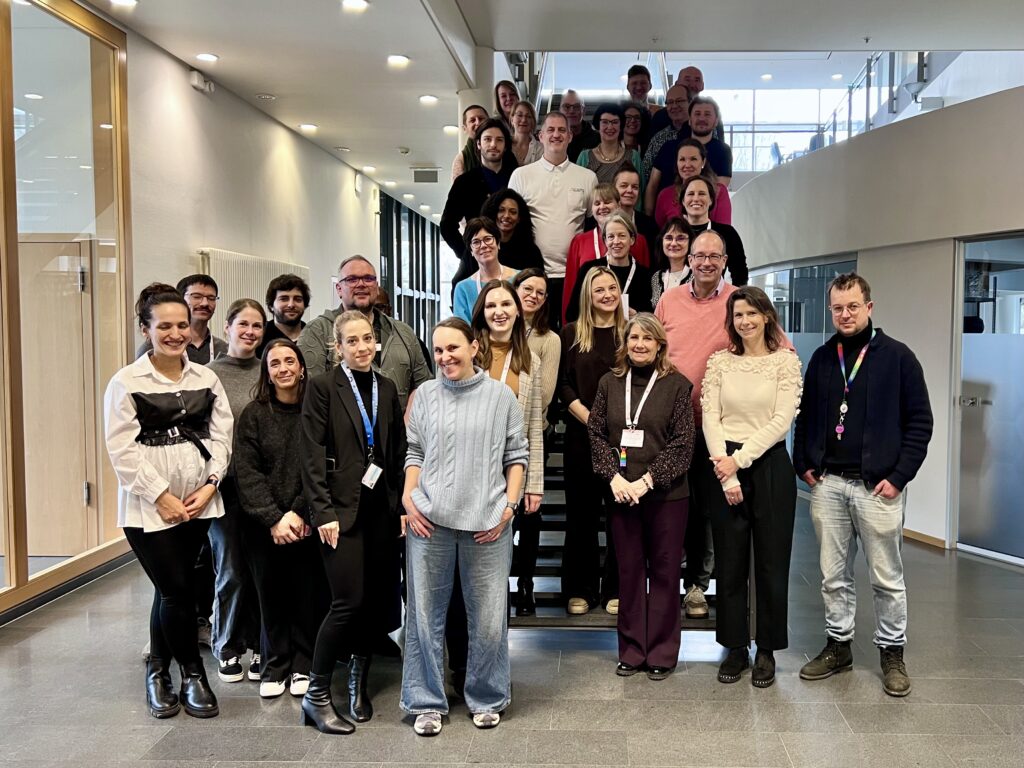series
[Article series] The experts behind Luxembourg’s Covid-19 fight

Interview with Prof Dirk Brenner
Prof Dirk Brenner (DB) is Deputy Head of Research & Strategy and leads the Experimental and Molecular Immunology research group at the LIH Department of Infection and Immunity. As an immunologist, his research focuses on unravelling the links between the immune system and the onset of a variety of diseases. In the context of the COVID-19 pandemic, Prof Brenner and his team are currently involved in the provision of evidence-based advice on the coronavirus to the Luxembourg government and other relevant stakeholders, as well as contributing to improving the understanding of the way the infection spreads among the Luxembourgish population. In this short interview, he discusses his expertise and involvement in ongoing COVID-19 projects.
Prof Brenner, could you tell us more about your expertise?
DB: I am an immunologist by training, having developed my expertise in this field over the years abroad with leading international experts. As head of the Experimental and Molecular Immunology research group at the LIH Department of Infection and Immunity, my lab and I specialise particularly in the elucidation of the mechanisms that regulate the immune system in order to maintain a healthy body function. Studying these mechanisms gives us invaluable insight into the onset and development of numerous diseases — such as autoimmune disorders, cancer and the inability to clear lethal infections — which arise precisely when the immune system is dysregulated.
How is your expertise being applied to the current COVID-19 context?
DB: My immunology expertise and the work I carry out with my team to understand what causes immune system dysfunctions are particularly relevant in the current COVID-19 situation. Indeed, it has already been observed that the outcomes of a SARS-Cov-2 infection range from a complete lack of symptoms to the development of respiratory problems, lung failure and ultimate death. It is therefore crucial to identify exactly the factors that are responsible for these diametrically opposed outcomes and what specific components of the immune system can be associated with a milder infection or a fatal prognosis. This is where my team and I can add value and assist the COVID-19 taskforce in decreasing the burden of the COVID-19 disease, thus tangibly improving patient care in Luxembourg.
What is your specific role in the ongoing COVID-19 initiatives of the Research Luxembourg taskforce?
DB: I have been contributing to several of the projects that are being implemented under the aegis of the taskforce. Namely, in the early phases of the anti-COVID action, I was involved in building up additional diagnostic capacity at LIH, so as to assist Luxembourg’s healthcare providers in screening and diagnosing a greater number of potentially infected patients. At present, I am leading an initiative aiming to support evidence-based decision-making. My team responds to requests from the government and other implicated stakeholders concerning SARS-Cov-2 and provides advice when needed. In addition, I am involved in a cross-sectional study that aims to understand the dynamics of the infection and its penetrance in the Luxembourgish population.
Could you tell us more about your collaborators at LIH?
DB: Carrying out all the tasks foreseen under each project would not be possible without the precious help of a significant number of key collaborators. For instance, my core team consists of PhD candidates Anouk Ewen, Luana Guerra, Leticia Soriano Baguet and postdoctoral fellow Takumi Kobayashi, who are all part of the working group dealing with the evidence review. In addition, we have a number of associated working group members, from LIH but also from other Luxembourgish institutes, who provide support with specialised activities, including Victoria El Khoury from the LIH Department of Oncology, Jacques Zimmer from the LIH Department of Infection and Immunity and An van Nieuwenhuyse from the Department of Health Protection of the Laboratoire National de Santé (LNS). By sharing our knowledge and expertise and collaborating closely with each other we ensure that we tackle this challenging situation in a holistic and cross-sectoral manner.
MORE INFORMATION
For the latest news about COVID-19, visit coronavirus.lih.lu








